Do World Barista Championship competitors always need to practise with official equipment?
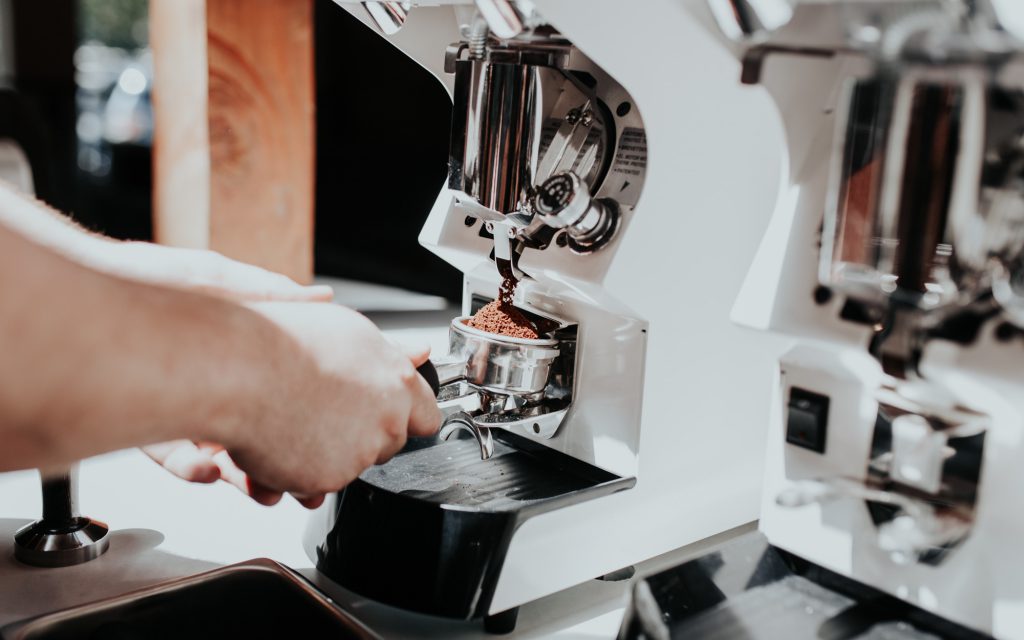
Every year, coffee professionals from around the world have the chance to compete and showcase their skills at one of the most celebrated events in the specialty coffee industry – the World Barista Championship.
Like many other competitions in the coffee sector, the WBC relies on a number of sponsors to provide equipment, products, and funding to run the event. For competitors, this means they have to use specific espresso machines and grinders, as well as any other particular products provided to them.
There are clear benefits to this. The most obvious is that bringing your own espresso machine or grinder to the competition is costly, not to mention a logistical nightmare. However, not all World Barista Championship competitors have equal access to official equipment prior to the competition. This means they must practise with different machines and grinders.
So, does this put them at a disadvantage to other baristas? To find out, I spoke with a WBC competitor and a WBC coach. Read on to find out what they had to say.
You may also like our article on what the plant milk rule means for the future of the WBC.
What equipment does the World Barista Championship provide to competitors?
Every three to five years, the SCA announces its chosen qualified sponsors for the WBC, as well as other World Coffee Championships. The process for choosing new sponsors involves a set of rigorous standardised testing for the specific products or equipment up for selection. It’s also based on a number of different criteria set by the SCA, including:
Testing machine performance and consistency
The company’s capacity to provide funding and to support the WBC community
Whether the company’s values align with the SCA’s mission
If their application is successful, a company will then have to provide the SCA with espresso machines, grinders, or other pieces of equipment to use at the WBC. In return, these brands receive promotion at the event – potentially increasing interest among the wider specialty coffee community, too.
Alongside espresso machines and grinders (which are arguably the most important pieces of equipment used at the World Barista Championship), other qualified sponsor categories include:
Cleaning products
Water filtration
Plant-based beverage – a new category announced in late 2022 following the rule change allowing plant milks to be used at the competition
Qualified sponsors & equipment for the 2022-2025 season
On 12 January 2022, the SCA announced the qualified sponsors for the 2022 to 2025 World Barista Championships. The most significant changes were the new espresso machine and grinder sponsors.
In summary, the Tempesta espresso machine by Barista Attitude is the qualified espresso machine sponsor for 2022 to 2025. This machine – which is a relatively new model – replaced Victoria Arduino’s VA388 Black Eagle espresso machine.
The Mythos MY75 by Victoria Arduino, meanwhile, is the qualified espresso grinder sponsor for 2022 to 2025. This model replaces Mahlkönig’s Peak and EK43 (S) grinders. While many baristas are certainly familiar with the Mythos MY75, it became clear that when the SCA made the sponsorship change announcement, some people were concerned about losing the ability to use two different grinders.
However, concerns about losing the ability to single-dose coffees were resolved when Victoria Arduino designed a single-dose funnel specifically for Mythos grinders. This means competitors won’t lose the freedom to brew several different coffees in their routine.
Is the requirement to use sponsored equipment a bad thing?
Without qualified sponsors, it would undoubtedly be challenging for the SCA to host the WBC in a different country every year. In line with this, it’s clear they are a necessary part of the competition.
Moreover, supplying each competitor with the same espresso machine and grinder certainly helps to even the playing field. For the majority of competitors, bringing their own machine or grinder to the competition would be anywhere from difficult to impossible.
However, we also need to acknowledge that not all baristas have equal access to the same equipment for training and practice.
Let’s look at both the benefits and disadvantages of using official equipment at the World Barista Championship.
The case for using sponsored equipment
There are many different espresso machines and grinders available on the market. In turn, it’s inevitable that competitors from all over the world are likely to be more comfortable with certain models. This is mostly based on their geographical location and which brands are available to them. Their budget is also a key factor if they need to invest in equipment themselves.
Junior Vargas Otero is the manager at GOTA Coffee Roasters and a four-time Austrian Barista Champion.
“Using official World Barista Championship equipment helps to increase consistency in all competitors’ routines,” he says. “Using the same espresso machines and grinders on stage, as well as for training, will only serve to improve consistency, which is key at the WBC.”
Even if two different espresso machines or grinders perform to a similar standard, there will still be some subtle differences between the two. Some of these could include:
Producing slightly different grind sizes and particle size distribution, even at a similar grinder setting
More noticeable weight discrepancies between doses
More variations in brew temperature, length of pre-infusion, and flow rate control
But do all competitors have equal access to the same equipment?
Realistically, not all competitors have the same level of access to official WBC equipment. For example, baristas from more economically developed countries are more likely to have access to sponsor espresso machines and grinders than competitors from less economically developed countries.
Ultimately, this could mean that some WBC competitors will be using the official equipment for the first-time ever during their routine in the first round. This could put them at a significant disadvantage compared to baristas who practised on official equipment – and who are therefore much more familiar with these machines and grinders.
Federico Bolanos is the founder of Alquimia Coffee Company and a World Coffee Championship coach. In total, he has coached three World Barista Champions, three WBC finalists and five semi-finalists, and 15 National Barista Champions.
“Competitors can technically practise on any kind of equipment and still have a shot at winning,” he says. “However, those who can practise with official WBC equipment will be able to dial in and calibrate their coffee to a higher standard.”
Junior, meanwhile, emphasises that competitors also need to focus on other aspects of their routines, which could potentially have more of an impact on performance.
“You need to choose the right coffee and focus on the overall concept of your routine,” he says. “Consistency is also key, as well as your training routine, your speech, and your movements on stage.
“Competitors should focus on mastering what they already have and already know,” he adds. “This could include scoring as high as possible in the technical category, as well as being creative in the signature drink round.”
Improving accessibility to create a more equal playing field
There has been criticism about the exclusivity and inaccessibility of the World Barista Championship for some time now. In line with this, it’s important we take into account how access to official equipment plays a key role in this conversation.
“Using the same equipment at national competitions and the WBC would be an advantage,” Junior explains. “However, national competition hosts have different sponsors, so they can only run the event with the equipment they are given.”
More training opportunities
Both Federico and Junior suggest that competitors could have more time to practise using official WBC equipment.
“Prior to the world finals taking place, there should be more time slots allocated to training at a dedicated facility,” Junior says. “That way, competitors have more time to become familiar with the espresso machine and grinders.”
Federico agrees, saying: “Perhaps qualified equipment sponsors could open training facilities in partnership with global distributors.
“This would allow competitors who don’t have access to or can’t buy the equipment to be able to train using official equipment,” he adds.
Another option could be to provide WBC competitors with more than one espresso machine and grinder at a range of price points, thereby making it more accessible.
“It would be interesting to see if having more than one equipment sponsor for the espresso machine and grinder categories could help improve accessibility,” Federico tells me.
However, as mentioned previously, different espresso machines and grinders will perform differently. Ultimately, this means some competitors could have an advantage over others.
Other ways to improve accessibility
Alongside having access to the same equipment, Federico and Junior suggest that competitors could also use the same coffee.
However, Federico points out this would be difficult to accomplish successfully.
“It’s not an easy task to fulfil if all competitors were to use the same coffee, also roasted by the same roaster,” he tells me.
“Competitors could also have a sponsored or certified WBC coach, or be able to present in their native language,” Junior says. “Another way to level the playing field would be to create an open service round – similar to World Brewers Cup.
“Baristas could use the same coffee, espresso machine, and grinder,” he adds. “They would be judged based on pure technical skill and workflow.”
The role of the qualified sponsors at the WBC is clearly a big part of the competition’s structure. Without them, we wouldn’t have one of the most innovative and exciting events in specialty coffee.
However, we also need to examine just how accessible this equipment is. An excellent barista should be able to adapt to different espresso machines and grinders. But in a high-stakes environment like the WBC, this isn’t always easy.
And with plenty of conversation around improving accessibility and inclusivity at the WBC, it will be interesting to see how the future of the competition changes – including the official equipment requirements.
Enjoyed this? Then read our article on whether the World Barista Championship is too exclusive & expensive for competitors.
Photo credits: Junior Vargas Otero, Specialty Coffee Association, World Coffee Events
Perfect Daily Grind
Want to read more articles like this? Sign up for our newsletter!
The post Do World Barista Championship competitors always need to practise with official equipment? appeared first on Perfect Daily Grind.
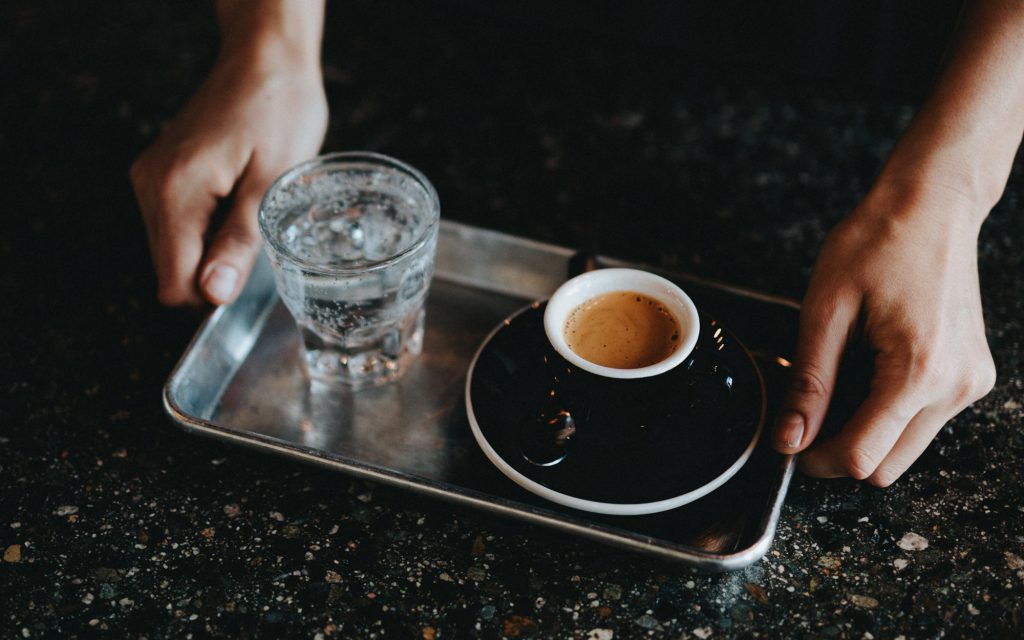
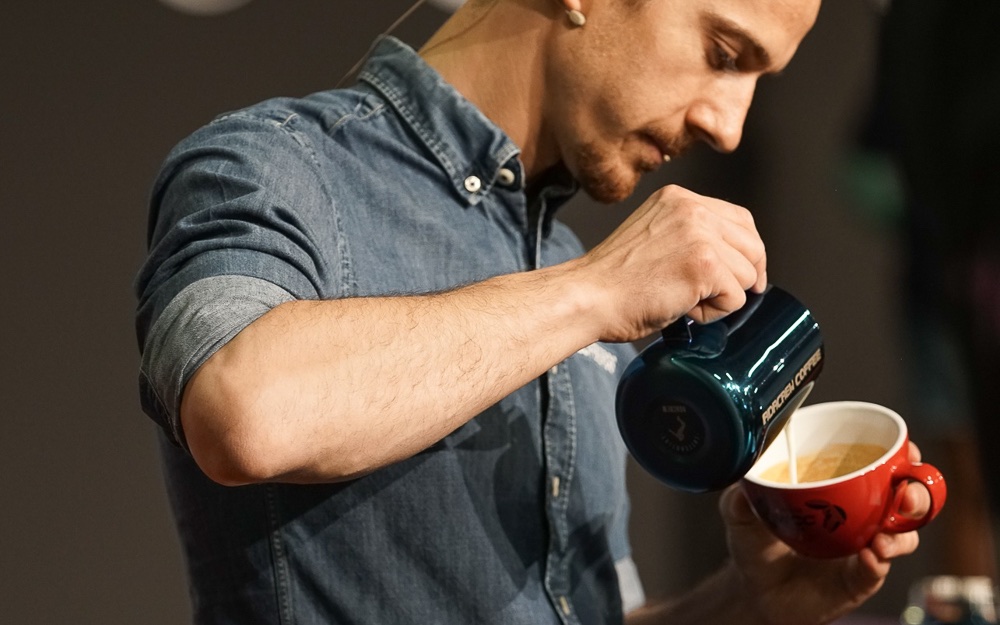
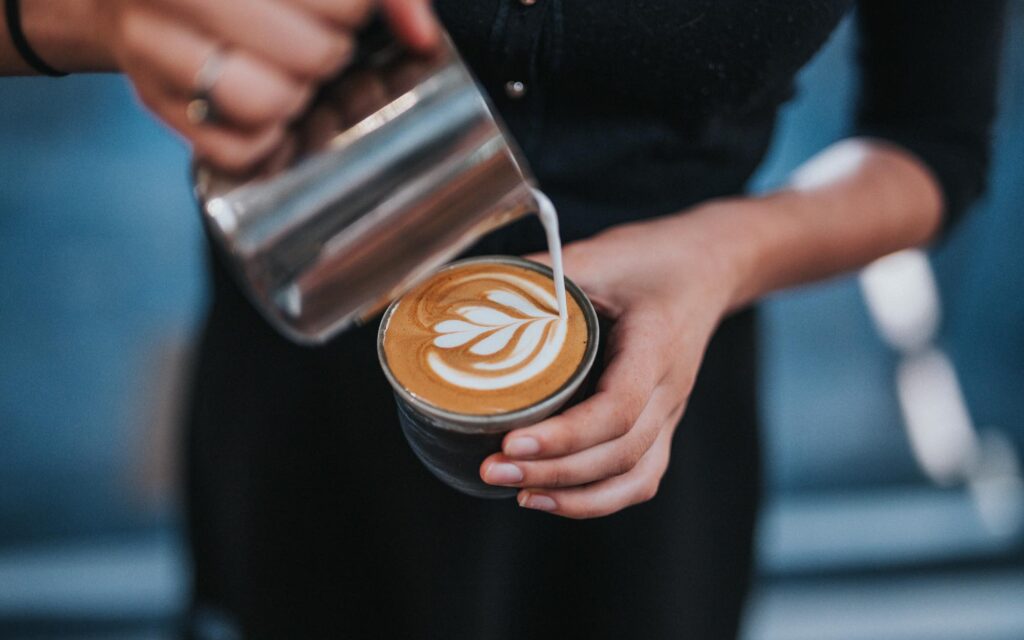
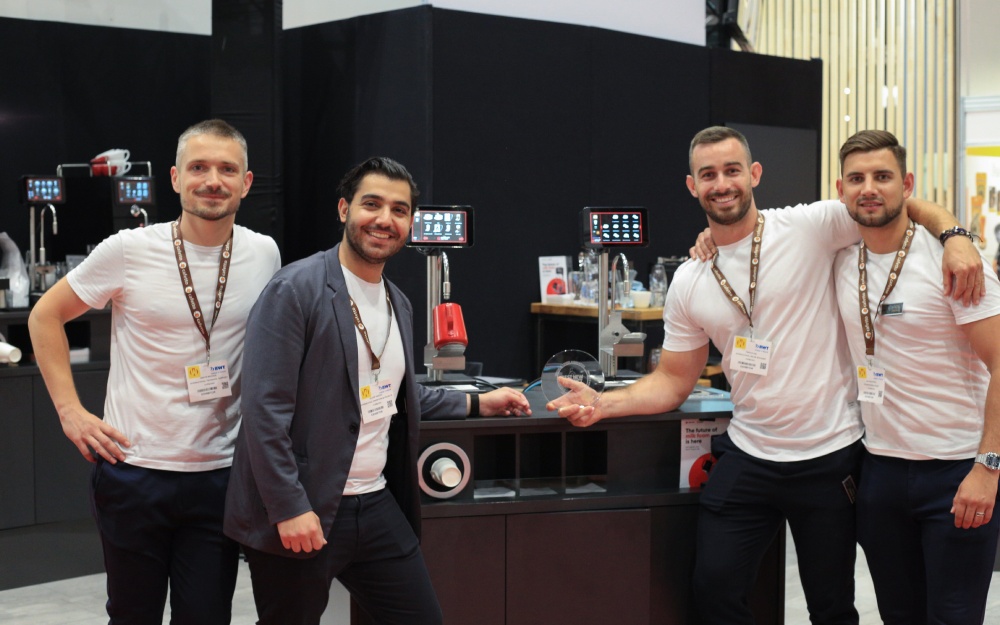
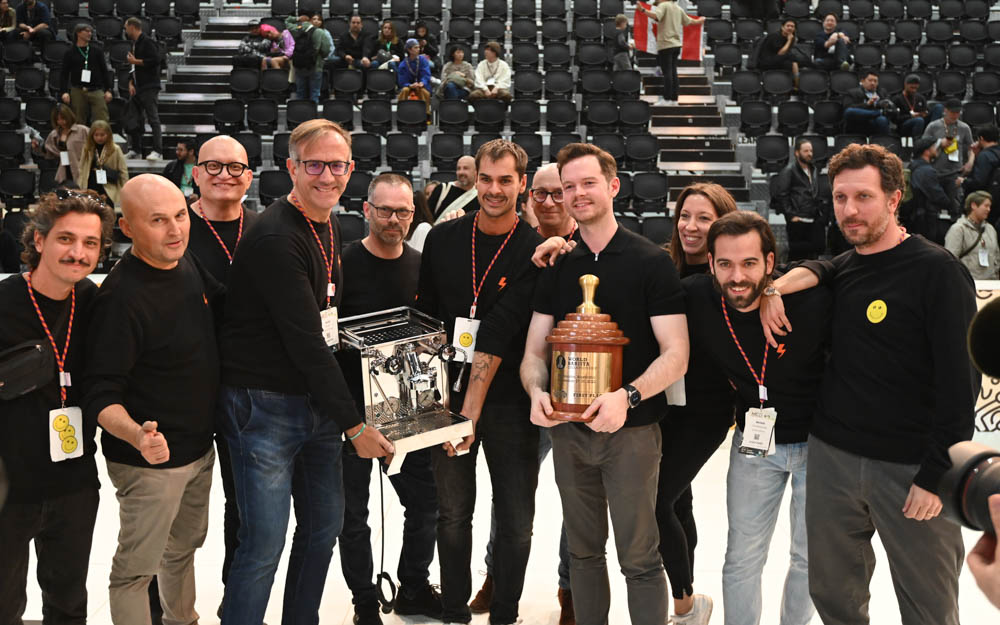
Responses